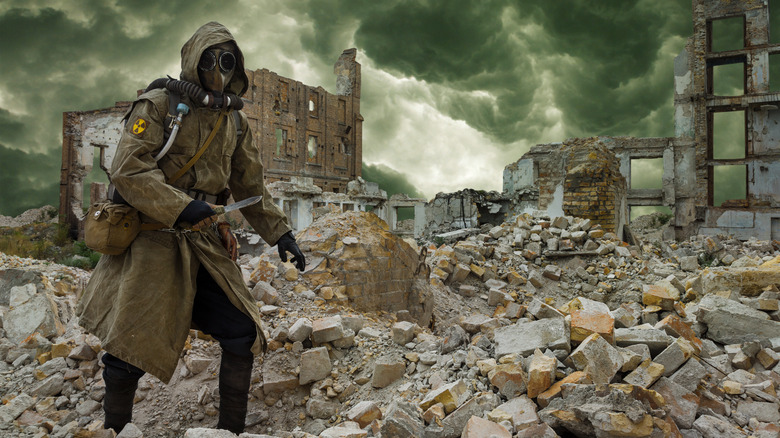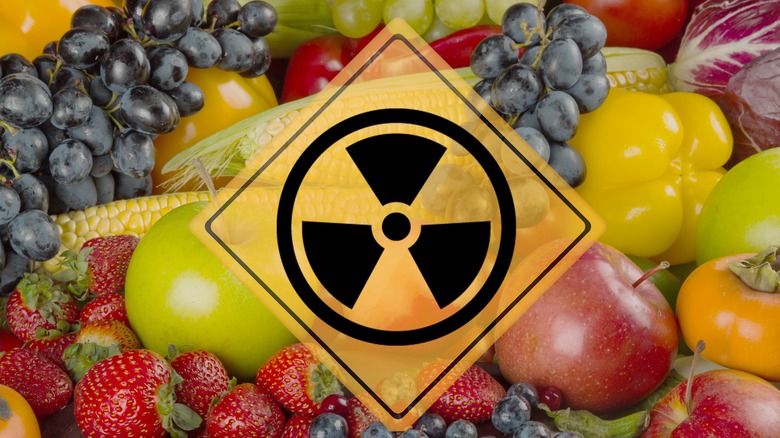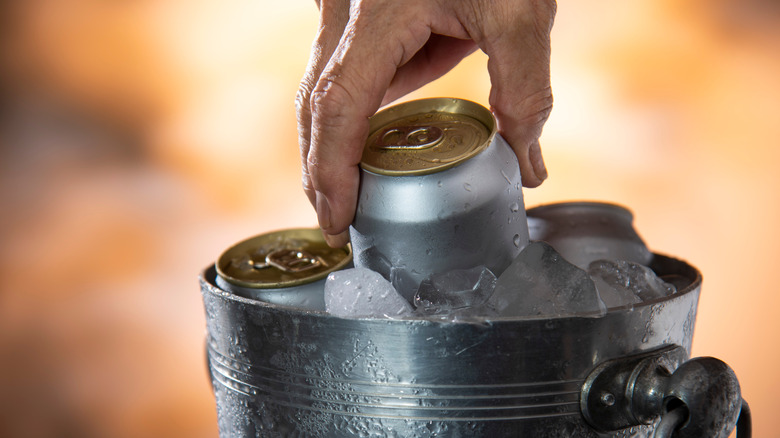Can You Enjoy A Beer After A Nuclear Explosion?
During a nuclear explosion, everything in the blast radius is at risk of becoming radioactive. But what if you're out of food and drinking water and the only things left are at the gas station down the road? Or maybe you just want to crack open a cold one as the world falls apart around you. If you've ever wondered if it would be safe to enjoy a six-pack during the end times, you're in luck! A U.S. government study titled "The Effect of Nuclear Explosions on Commercially Packaged Beverages" answered this exact question in 1957.
A team made up of employees of the Glass Container Manufacturers Institute and the Can Manufacturers Institute worked together on behalf of the Federal Civil Defense Administration to study the effects of a nuclear explosion on cans and bottles of soda and beer by placing cans and bottles at various distances from a real atomic explosion. They measured the levels of radiation in the sodas and beer and then conducted a taste test (via NPR). What they found was somewhat surprising.
Would a soda or beer in the blast radius become radioactive?
The main concern when drinking a soda or beer after a nuclear explosion is the risk of it becoming radioactive. Exposure to radiation can be extremely dangerous to the human body. In the short term, high doses of radiation can cause radiation sickness, causing nausea and vomiting within hours, and can sometimes become fatal over the next several days or weeks.
Long-term, high doses of radiation greatly increase the risk of cancer and cardiovascular diseases. While low doses of radiation typically do not have any immediate health effects, exposure can have a small increase in the risk of developing cancer over time (via the Environmental Protection Agency). Generally speaking, the higher the dose, the higher the risk and vice versa when it comes to radiation. If you manage to avoid an initial nuclear blast, everything in the area of the blast will still be a health risk because most of it will become radioactive.
It may be safe to have a beer, but don't expect it to taste good
The government study found that bottles close to ground zero were mildly radioactive, but the contents inside were mostly safe, per NPR. The levels of radiation inside the cans and bottles were within permissible limits for emergency use, meaning it won't hurt you in the short term if you had to drink one.
So if it's safe to drink, will it still taste the same? The study had taste testers take a sip of the sodas and beers after the blast. Products exposed at 1,270 feet from ground zero (the closest that were still intact), didn't taste quite right. Later evaluation of the beverages in a lab found the flavor to be "acceptable."
In summary, the study concluded that in the absence of drinkable water after a nuclear explosion having a soda or a beer may be a safe alternative in the short term (via NPR). If you do decide to drink the contents of a radioactive beer — and there may never be a better time than after a nuclear explosion to imbibe — don't expect it to taste exactly like what you are used to, but then again, in that scenario, most things will no longer be like what you are used to.


